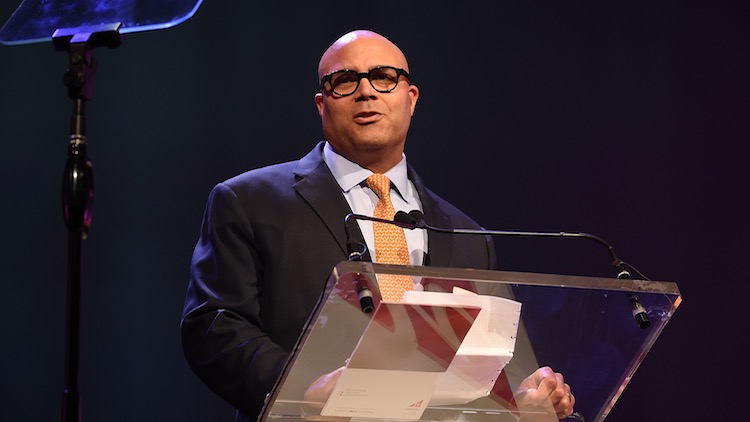TIS17: Powell Tells Small Ops Title II Would Be Disaster for Industry—and U.S.

The smarter way to stay on top of broadcasting and cable industry. Sign up below
You are now subscribed
Your newsletter sign-up was successful
INDIANAPOLIS—Before a crowd of cable faithful, Michael Powell, the head of NCTA–The Internet and Television Association, painted a dystopian world for cable operators and consumers alike if internet service providers are regulated under Title II of the Communications Act of 1934.
“Using that model would be a disaster for the industry and a disaster for America’s ambitions in the information age,” said Powell, in a passionate response to a question onstage at The Independent Show. “This country will regret it when it looks back a decade…it’ll wonder how it made this mistake.”
Get Complete Coverage of #TIS17.
Powell, a former FCC chairman who now represents the nation’s largest cable operators, spoke to a packed room of small and mid-sized cable operators represented by the National Cable Television Cooperative and the American Cable Association.
Each of the groups is lobbying against such rules that disallow blocking or slowing down internet speeds for competitors, now being reconsidered at the FCC, headed by chair Ajit Pai, who is behind a proposal to reverse Title II rules as the best way to ensure net neutrality.
Echoing Rep. Susan Brooks (R-Ind.), whospoke a day earlier, Powell said that net neutrality “is a horrible term—it’s sort of meaningless,” and there is mass confusion among consumers over the term.
“Americans have never known anything but an open internet," Powell said, adding that an open internet was an engineering concept deeply woven into the way the internet was designed.
The smarter way to stay on top of broadcasting and cable industry. Sign up below
“One of the great lies is that that's ever been challenged, or that it’s at risk,” he said. “The bottom line is that nobody has ever represented to me a meaningful business model that would ultimately cause consumers to have a horrible experience.”
Digging deeper, he said: “How would a cable operator really do this? ‘I’m going to slow down the experience of my consumers to a perceptible degree. I’m going to have to reengineer the network to sort bits to the ones that paid and the ones that didn’t, and after I do that I have to be sure the super smart tech wizards of Silicon Valley don't learn how to circumvent that system at the drop of a dime, which I assure you they would. I don’t think there’s any meaningful business model that would be profitable. This thing became politicized and created a mythology, and we’re arguing against the mythology.”
Proponents of Title II rules say the rules would curb potential abuses by the companies that control the network; Powell called Tile II regulations “essentially common carrier public utility regulation of infrastructure” and “rate regulation” that would deter innovation and investment.
Powell pointed out that "three of four critical infrastructures are crumbling in the U.S." Highways and bridges are falling down, the water and sewer system is breaking, and the electric grid is “rickety,” he said.
“There is one critical infrastructure in their country that’s thriving, one critical infrastructure that attracts $30 billion of investment a year, one infrastructure that has spent a trillion dollars in the last decade, one infrastructure that mostly doesn't go down, one infrastructure in this country that has proven robust and innovates and grows and has maintained prices that are relatively flat…and that is the broadband industry in the U.S.—and it’s on the only one that hasn't been regulated by common carrier public utility infrastructure.”
Said Powell, “What was the problem that needed so much fixing?
